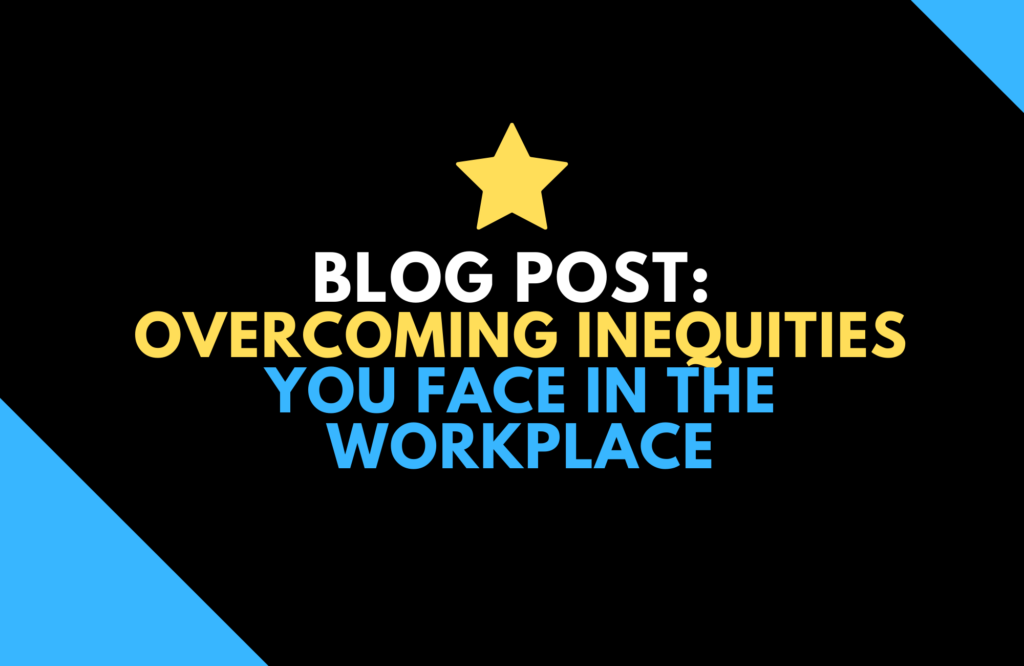Empowered employees transform work cultures and you have the power to be one of those people.
“No one can make you feel inferior without your consent.” -Eleanor Roosevelt
Yes…. Is all we need to say when we ask ourselves if inequity and inequality still exist in the workplace.
There are invisible barriers that are often placed around certain groups of people that prevent advancement, development, and greater opportunities.
Unconscious perceptions that cause people to feel as if they are not valued, wanted or belong within an organization’s culture.
However, in spite of these inequities that exist, we can overcome them and succeed.
The solution can be found in ourselves.
The moment an individual allows another person to dictate their worth or value is the moment that they’ve released control of how empowered they can be.
Simply put, if an individual chooses to point a finger at what another person is or isn’t doing, they’ve made a choice to relinquish responsibility for their own success.
You can choose to be empowered or you can choose to be a victim, but you can’t be both.
A mentor of mine shared his early professional experience with me that highlighted this point perfectly. He was raised in the south and after high school attended an HBCU and then went to San Francisco to complete his PH.D.
As a black man going to college in the 60’s he noticed that many of his peers and people from his community didn’t reach their highest potential often due to the way they saw themselves which was a reflection of how society depicted them.
He made a choice that he was going to succeed in spite of the inequality that was swirling around the nation at that time.
After getting his degree he eventually was offered a job as a department chair at a large university in Utah in the 1970s. He was the only black person holding that kind of position at the university. He knew that he deserved it, he knew that he had a lot to bring to his department and that his greatest barrier to success was himself.
With that mentality, his success was inevitable.
He didn’t wait for people to tell him that he belonged there, he didn’t wait to be treated the way his white counterparts were treated, he didn’t wait for equality, instead, he took an empowered approach and told himself, I will succeed regardless.
His department excelled during the time he was there. After nearly a decade at the university, he realized that he could do even more if he started his own company. He launched his organization and has been successful for over 35 years.
His story inspired me to look back through history and reflect on some of the greatest “heroes” of our time. Martin Luther King Jr., Madam C.J. Walker, Gandhi, Nelson Mandela, and Viktor Frankl.
The common thread all these people share is they all succeeded in spite of the inequities they faced.
They didn’t wait for a pat on the back, or someone to tell them that they were valuable, they knew at a deep level that they were just as worthy as anyone who exists. They made a choice to be empowered and not a victim of circumstances.
So how does this relate to you and me and the work we do in our organizations today?
We can start right where we are to release all thoughts of victimhood that surround ourselves, our roles within our organization, or what we can or cannot do.
We can make a choice to be empowered and to know that we are just as valuable and worthy as anyone else that exists within our workplace, community, or world. Not better than nor less than, but just as valuable and worthy.
When we allow this idea to become a reality something happens. The environment we find ourselves in begins to transform in relation to the shift that has happened inside of ourselves. We show up differently, we speak to our colleagues differently, we take a stand for those who won’t stand for themselves and our actions become more inclusive in nature.
We show up differently, we speak to our colleagues differently, we take a stand for those who won’t stand for themselves and our actions become more inclusive in nature.
Empowered employees transform work cultures and you have the power to be one of those people.

